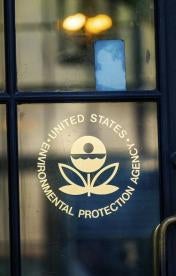EPA finalized a rule effective on August 7, 2023 concerning the treatment of confidential business information (CBI) claims made in Toxic Substances Control Act (TSCA) submissions. Companies who submit any information to EPA under TSCA and want their confidential information to be protected from public disclosure must comply with these new requirements for CBI claims. Failure to follow these procedural requirements can result in EPA’s denial of the confidentiality claims and the information being made public.
This new final rule implements the CBI requirements in Section 14 of amended TSCA, streamlines and standardizes the process for making CBI claims, reduces the potential for deficient CBI claims, and clarifies the scope of information that qualifies for confidential treatment. Since the rule took effect, EPA has already temporarily waived certain parts of the rule so the Agency has more time to make updates to its central data exchange (CDX) system necessary for implementation of the final rule. In addition, the Environmental Defense Fund has brought a legal challenge against the rule in the US Court of Appeals for the D.C. Circuit.
Background
Section 14 of TSCA broadly protects information submitted to EPA that is exempt from disclosure under Freedom of Information Act (FOIA) exemption 4: “trade secrets and commercial or financial information obtained from a person and privileged or confidential.” However, TSCA does not prohibit EPA from disclosing health and safety studies, any general information describing the manufacturing volumes (expressed as specific aggregated volumes or ranges), or a general description of a process used in the manufacture or processing and industrial, commercial, or consumer functions and uses of a substance. Also, if EPA bans or requires a phase-out for a substance, EPA will no longer protect information regarding that substance.
Under the Lautenberg Amendments to TSCA that passed in 2016, companies must make CBI claims and substantiate their claims (unless the information is specifically exempt from substantiation) when they submit information to EPA under TSCA. Companies substantiate claims by responding to substantiation questions provided in EPA’s CBI regulations (and on EPA-provided template forms) that ask about what information is being claimed CBI and how the company protects such information. Companies must certify that they have (1) taken reasonable measures to protect the confidentiality of the information; (2) determined that the information is not required to be disclosed or otherwise made available to the public under any other federal law; (3) a reasonable basis to conclude that disclosure of the information is likely to cause substantial harm to the competitive position of the person; and (4) a reasonable basis to believe that the information is not readily discoverable through reverse engineering. TSCA limits the duration of confidentiality claims to 10 years, at which time they can be reasserted and re-substantiated.
Final Rule: New Requirements for CBI Claims
The final rule includes the following CBI procedural requirements:
- Making confidentiality claims for chemical identity: EPA maintains that, if a submitting entity fails to assert or substantiate a confidentiality claim for a chemical identity at the time of submission, then the chemical identity would not be entitled to confidential treatment. EPA acknowledges that issues may arise for entities reporting a chemical identity using an accession number (non-confidential identifier) without also asserting a CBI claim because that chemical identity would then be treated as not confidential and would be moved to the public portion of the TSCA Inventory. EPA acknowledged that commenters expressed concerns that downstream customers or processors of a specific chemical would report under TSCA by accession number and, ignorant of specific chemical identity, could accidentally or intentionally waive the confidentiality claim and cause the substance to lose confidential status. EPA considered these concerns that an entity lacking knowledge of a specific chemical identity may nonetheless waive confidentiality for that chemical identity; however, EPA believes that the best way to address these concerns is to include measures in specific TSCA reporting rules that take into account the reporting entity’s potential lack of knowledge, where such measures are necessary.
- Standardization of CBI substantiation questions: Previously, CBI substantiation questions were included in each regulation for the different types of TSCA submissions (e.g., regulations for new chemical submissions, for chemical data reports, etc.). Now, EPA has created a standard set of CBI substantiation questions and centralized them into one regulation at 40 C.F.R. Part 703. Further, EPA omitted a substantiation question that was previously required in the TSCA regulations concerned with patents. Where information claimed as confidential appears in a patent, then the claim must address that public disclosure through questions in the substantiation on public disclosure more generally. EPA also removed a substantiation question related to trade secrets because the question had elicited answers that were either redundant with the answers to other substantiation questions or otherwise did not include useful information for EPA and caused confusion.
- Generic names: EPA also clarifies requirements around how generic chemical names must be submitted. Generic names must be provided any time a specific chemical entity is claimed as confidential. EPA includes minimum generic name requirements in the rule, along with a process for negotiating generic names through which EPA would have an opportunity to correct deficient names.
- Electronic reporting requirements: The rule requires electronic reporting for all TSCA submissions that include CBI claims. EPA intended for its electronic reporting system to be enhanced with built in certification and validation tools to reduce procedural errors, make submissions more uniform, and make data available to the public more quickly. However, as explained more below, EPA has not yet done so, and therefore it has delayed implementation of this part of the rule, as is discussed below.
- Information submitted via other means: EPA addresses potential conflicts which may arise where information is used under the TSCA program but obtained under other statutes. Where information is originally submitted under a statute other than TSCA, EPA clarifies it may be protected from disclosure under the provisions of the other statutes, even if it would not be eligible as CBI under TSCA. The rule states EPA’s opinion that it does not violate TSCA for EPA to withhold or restrict disclosure of data pursuant to requirements of other laws.
- Health and safety information: Under TSCA, EPA does not protect as CBI health and safety studies about chemical substances that are submitted to EPA. TSCA defines health and safety study to mean “any study of any effect of a chemical substance or mixture on health or the environment or on both, including underlying information and epidemiological studies, studies of occupational exposure to a chemical substance or mixture, toxicological, clinical, and ecological studies of a chemical substance or mixture, and any test performed pursuant to [TSCA].” The final rule clarifies what types of information are not included in the definition of “health and safety study” and therefore can be claimed as CBI and cannot be disclosed by EPA. For example, EPA clarifies that all “underlying” information is considered part of the health and safety study and therefore can be disclosed by EPA. However, information such as lab techs, lab name, company name, internal product codes, marketing plans, private information, and financial data are not part of the health and safety study and therefore must be protected from disclosure if claimed as CBI. Additionally, EPA finalized the requirement that health and safety information be provided using an “Organization for Economic Co-operation and Development (OECD) harmonized” template, when available.
- Opportunity to correct deficiencies: Submitters will have 10 business days to correct deficiencies in CBI claims.
- Maintenance of electronic communication: The rule requires maintenance of company contact information and electronic communication for each submission and each claim of CBI. EPA notes these enhancements will ensure required notices of CBI claims are delivered more quickly to submitters. EPA intends to communicate with submitters about their CBI claims via CDX.
EPA Waives Certain Requirements for Electronic Reporting of CBI
As discussed above, EPA’s final rule requires that all TSCA submissions with CBI claims be submitted electronically through CDX. However, EPA announced on August 10 that it is temporarily waiving some of the electronic reporting requirements while it continues to update its CDX web portal used for certain TSCA reports. EPA indicates in its announcement that it expects the CDX tools to be available by October 16, 2023. EPA provided a list of the types of information that are not subject to the electronic reporting requirement until October 16:
Responses to substantiation questions specified in 40 CFR 703.5(b) as incorporated into the following TSCA electronic reporting forms and tools available in CISS:
- General communication forms
- Enforcement communication forms
- TSCA mercury electronic reporting
- TSCA risk evaluation submissions
- TSCA12(b) notices
- TSCA Section 4 and Section 5 notices
- TSCA Section 8(d) and (e) reports
EPA’s announcement also provides links to each form referenced above and provides guidance for reporting while the waiver is in effect. EPA also indicates that it will be “flexible” in implementing the new requirement for companies to submit CBI using OECD harmonized templates.
Litigation over Final Rule
On June 29, 2023, Environmental Defense Fund (EDF) filed a petition for review challenging the final CBI rule in the US Court of Appeals for the D.C. Circuit. EDF has publicly stated that it believes the final rule lacks transparency and is too lenient on CBI claims, referencing the 10-day allowance for companies to correct deficient CBI claims, EPA’s exemption from CBI substantiation requirements for claims of chemical identity before the chemical is commercialized, and EPA’s interpretation of what is included in a health and safety study. EDF claims that the final rule would allow submitters to assert CBI claims to protect information that TSCA makes “categorically ineligible” for CBI protection. The American Chemistry Council (ACC) moved to intervene in this case. ACC and the American Fuel and Petrochemical Manufacturers (AFPM) also filed a petition review of the CBI final rule on August 4, 2023 in the US Court of Appeals for the D.C. Circuit. EDF has moved to intervene in that case, and these two cases have been consolidated.









 i
i


